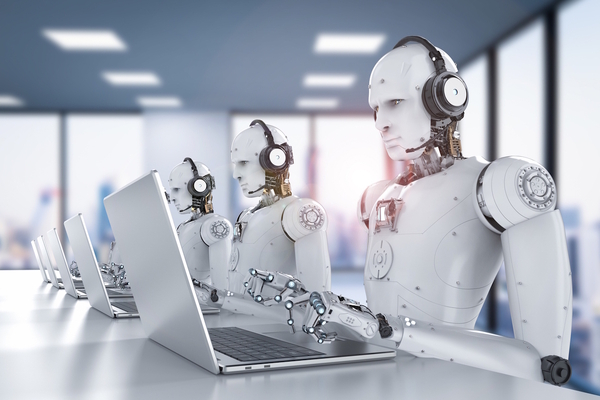The agile workforce is the unstoppable workforce

Vicky Wills at Exclaimer explores adaptability – the ability to learn, unlearn and reimagine technological approaches
The rapid evolution of technology is constantly reshaping the way we work and the skills we value. Research from the ISSC estimates that by 2030, one in five UK workers could be significantly underskilled for their roles, reflecting the ever-changing demands of the modern workplace.
Digital literacy has long been a top priority for organisations, making sure teams feel confident and equipped to navigate new tools and technologies. But as AI and automation continue to transform industries at an unprecedented pace, simply knowing how the tools work is not enough.
Adaptability – the ability to learn, unlearn and reimagine technological approaches – is becoming just as important as using the tools themselves, helping businesses respond to change with confidence and flexibility.
The ability to interpret signals of change, experiment with agility and empower teams to adapt ensures organisations don’t just keep up with technological advancements. Instead, they turn new tools into a springboard to thrive in uncertainty, with adaptability and digital literacy working hand in hand.
Why skills matter more than job titles
The traditional job concept, often defined by static responsibilities tied to specific roles, is giving way to the demands of a dynamic workplace. Automation has taken over routine tasks, and emerging technologies are redefining how work gets done. In response, organisations are shifting from a job-centric model to a skills-centric one, focusing on what employees can learn and contribute over time rather than limiting them to predefined roles.
Policy changes like the new Growth and Skills Levy, which allows employers to use 50% of their contributions for non-apprenticeship training routes, further accelerate this shift. Giving businesses greater flexibility to upskill or retrain their workforce – including more experienced employees – provides an opportunity to align training efforts with emerging technological demands. For tech training in particular, this flexibility is crucial for ensuring employees stay adaptable and prepared for evolving challenges.
It’s no longer about mastering a single tool or skill but fostering a mindset that thrives in a constantly evolving ecosystem. A data analyst today, for example, doesn’t just crunch numbers – they evaluate AI use cases, derive real-time insights from complex datasets and collaborate across departments to inform business strategies. Similarly, marketing managers now go beyond campaigns and budgets, leveraging AI for audience segmentation, personalising content and seamlessly monitoring performance across platforms.
Adaptability is a leadership skill too
One in three employees receives little to no guidance from their managers, leaving them to navigate change and shifting priorities on their own. That’s not just a skills gap – it’s a leadership gap. Leaders set the tone for how organisations navigate uncertainty, and their decisions directly influence whether teams feel prepared to meet new challenges or fall behind. This begins with providing clear direction.
Risk is another area where leadership is critical. Technological change often involves experimentation, and experimentation carries risk. Leaders who actively support learning from setback create an environment where teams feel encouraged to try new approaches. A project setback isn’t wasted if the insights gained drive better decisions in the future.
And finally, perhaps most importantly, leaders need to lead by example. If employees see their managers adapting to new challenges, staying open to feedback and showing a willingness to pivot when things don’t go to plan, they’re more likely to follow suit. It sets a tone where adaptability isn’t just something that’s expected – it’s something that’s embraced at every level.
One-size-fits-none
With 77% of employers struggling to fill roles, the focus is shifting toward building internal expertise. Organisations with strong learning cultures see 57% higher retention rates than those without, highlighting the competitive edge gained by investing in adaptable, well-supported teams.
Adaptability thrives when organisations move beyond standardised approaches and embrace the individuality of their workforce. The idea of a one-size-fits-all strategy has no place in a world where technological change is constant. Recognising that people learn, adapt and grow differently is about building a sharper, more competitive edge.
Consider how personalised tech experiences shape consumer expectations. Employees bring the same mindset to their professional environments. They expect intuitive systems and tools that cater to their workflows, not rigid platforms that require excessive navigation or force a uniform approach. For organisations, this means designing infrastructures and processes that flex to meet different learning styles and workflows.
For example, some employees may thrive in digital environments that gamify skill-building, using microlearning platforms that integrate AI-driven insights to provide tailored development paths. Others may prefer collaborative, real-world problem-solving like hackathons or cross-departmental innovation challenges. A few might need deeper mentorship or one-on-one coaching to unlock their potential.
Adaptability isn’t a static skill. It’s a culture, a leadership mindset and a commitment to nurturing individuality. Digital literacy lays the groundwork, but adaptability is what enables organisations to see opportunity where others see disruption and to turn uncertainty into momentum.
Vicky Wills is Chief Technology Officer at Exclaimer
Main image courtesy of iStockPhoto and wildpixel

Business Reporter Team
You may also like
Related Articles
Most Viewed
Winston House, 3rd Floor, Units 306-309, 2-4 Dollis Park, London, N3 1HF
23-29 Hendon Lane, London, N3 1RT
020 8349 4363
© 2025, Lyonsdown Limited. Business Reporter® is a registered trademark of Lyonsdown Ltd. VAT registration number: 830519543





